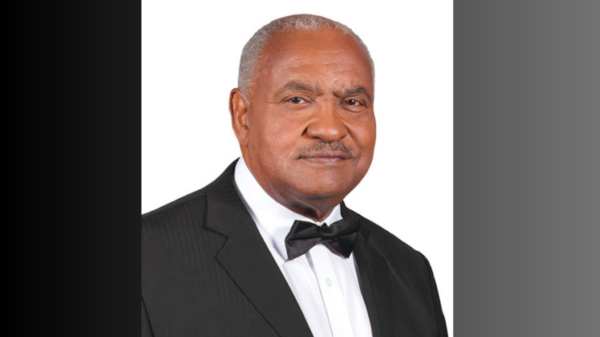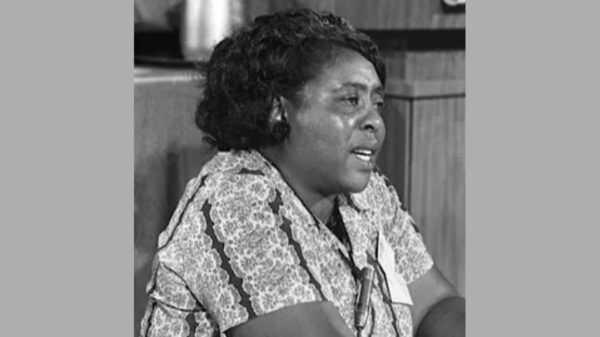
By Jesse Jackson Sr.
Our history involves both hard facts and interpretation — the context in which the hard facts are presented. Interpretation inevitably is political and contested. How we see the past reflects how we live in the present and what we hope for in the future.
That’s what makes Florida Gov. Ron DeSantis’ efforts to impose a new curriculum for public school instruction on African American history both revealing and repellent. A furor has grown about the new state guidelines for the history of slavery, which call for students to learn that “slaves developed skills which, in some instances, could be applied for their personal benefit.”
Depicting slavery as a jobs training program and a civilizing mission for the Africans who were enslaved has long been a central theme of those seeking to justify slavery. The ugly reality, of course, is that Africans were brought here in chains against their will and were bought and sold as chattel. They had no choice in what work they did or how they lived. The vast majority died in slavery.
In the 1857 Dred Scott decision, Chief Justice Roger B. Taney ruled for the Supreme Court — in what is viewed as the worst decision in history — that enslaved people were not citizens of the United States, and had no rights under the federal government.
It took a Civil War — the most violent conflict in American history — and the 13th, 14th and 15th Amendments — for slaves to gain freedom, and even the possibility to develop skills “for their personal benefit” or to choose their mates, build their families, own property and more.
And the brief moment of freedom offered in the post-Civil War Reconstruction Era was met across the South with bands of white terrorists, systematic suppression of the right to vote, brutal use of the criminal justice system to turn Blacks into prison labor, segregation of schools and public facilities. In Plessy v. Ferguson in 1896, the Supreme Court ruled that segregation was legal under the Constitution, depriving African Americans of equal justice under the law for 100 years after the Civil War.
During the century of segregation, the Civil War was taught as a “lost cause” of state’s rights. Slavery was often portrayed as a “benevolent institution.” The Reconstruction was depicted as a time of rapacious carpetbaggers and lecherous Black politicians preying on innocent whites throughout the South. It was only with the civil rights movement, courageous work by honest historians, and the Supreme Court overturning Plessy in Brown v. Board of Education, that our schools began to teach something closer to reality.
DeSantis hand-picked the Florida board that approved the new curriculum instruction. It is part of the central theme of his presidential campaign: what he calls the “war on woke.” “Woke,” his spokesman reported, is the “belief that there are systemic injustices in American society and the need to address them.” DeSantis doesn’t believe in that. So he naturally turned his attention to purging the schools of books, and purging the curriculum of unvarnished history. He touts his “Stop Woke Act” which protects students from any instruction to “feel guilt, anguish or any other form of psychological distress” due to their race, color, sex or national origin.
It is impossible to describe slavery, the horrors like the Greenwood Massacre in Tulsa, Oklahoma, or Bloody Sunday in Selma, Alabama, without causing “distress” at the reality of our racial history. It is impossible to understand today’s America — and the women’s movement, the Black Lives Matter movement, the fight over rights for members of the LGBTQ community — without looking at how entrenched biases still scar our quest for equal justice under the law.
DeSantis, of course, thinks that he will benefit politically by touting his pasteurized version of history and his “war on woke.” That hasn’t gone so well. Despite burning through tens of millions of dollars, his presidential campaign is stalled. The more people see of him, the less they seem to like him. He wanted to present himself as a competent Donald Trump, Trump’s venom without the legal mess, but that doesn’t seem to be selling.
Perhaps DeSantis is discovering that racial dog whistles don’t have the strength they used to have. Much of the backlash to his curriculum has come from Black Republicans. The young generation is turning against DeSantis and other Republicans in overwhelming numbers. They seem to be more comfortable with their diversity and more impassioned about the gun violence that is killing them, the economy that doesn’t work for them and the extreme weather that threatens their very future. Now that would be a lesson worth teaching.









You must be logged in to post a comment Login